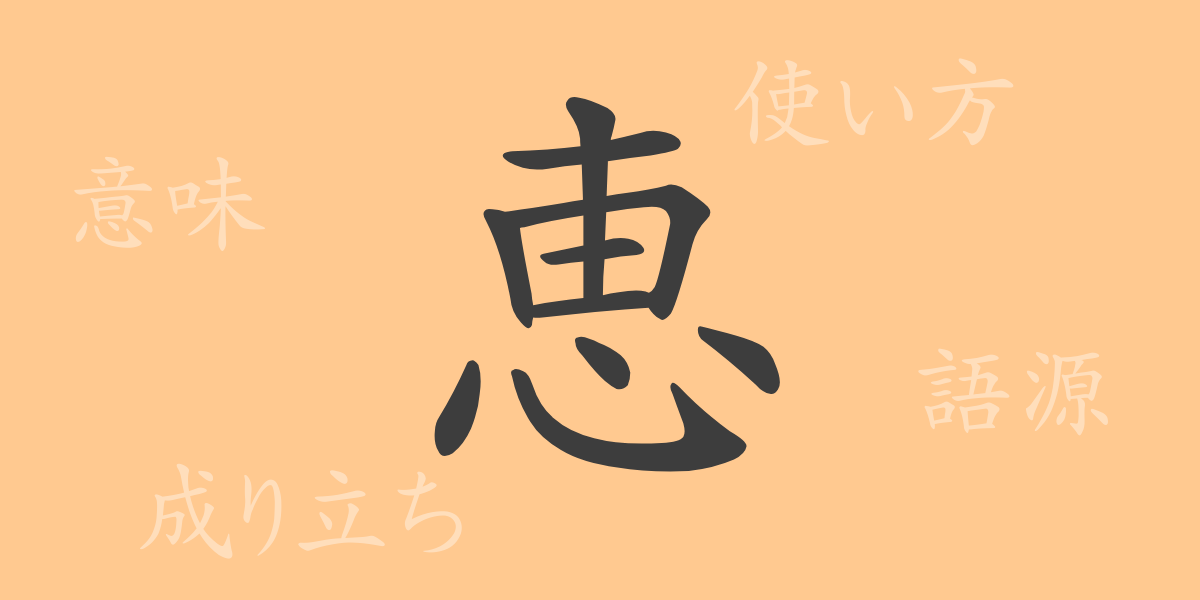The kanji deeply rooted in Japanese culture each hold unique histories and meanings that significantly influence the lives and thoughts of Japanese people. “恵(めぐみ)” is one of these characters with especially rich meanings. This article explores the origins, meanings, usage, and common phrases involving the kanji “恵(めぐみ),” revealing its profound significance.
Origin of 恵(めぐみ) (Etymology)
The kanji “恵(めぐみ)” is derived from ancient Chinese characters. Its formation consists of the part representing “heart” and an enclosing shape. The “heart” symbolizes emotions and thoughts, while the enclosing shape indicates containing or embracing. Together, these elements create the meaning of “giving with heart,” representing concepts such as generosity and benevolence.
Meanings and Uses of 恵(めぐみ)
The kanji “恵(めぐみ)” means “to bestow favor,” “to be blessed,” and “to give generously.” Specifically, it refers to providing material or spiritual abundance to others or being in a state of receiving such blessings. In Japanese, it appears in various forms, such as “恵(めぐみ)” (blessing) and “恵比寿(えびす)” (a god of prosperity), and is cherished as a word that wishes for happiness and abundance.
Readings, Stroke Count, and Radical of 恵(めぐみ)
The kanji “恵(めぐみ)” has several readings in Japanese.
- Readings: The on’yomi (Chinese reading) is “ケイ” and “エ,” and the kun’yomi (Japanese reading) is “めぐ.む” and “めぐ.み.”
- Stroke count: The kanji “恵(めぐみ)” consists of 10 strokes.
- Radical: The radical is “心” (heart) or its variant “忄.”
Idioms, Expressions, and Proverbs Using 恵(めぐみ)
There are many idioms, expressions, and proverbs in Japanese that include “恵(めぐみ),” each adding rich nuance to the language. For example, the idiom “恵比寿笑(えびすわら)い” means a satisfied laugh arising from having no worries, and “五穀豊穣(ごこくほうじょう)” signifies a bountiful harvest of the five grains, representing overall prosperity. Another example is “恵方巻(えほうまき),” a thick sushi roll eaten on Setsubun while facing a specific direction (the year’s lucky direction) in silence to bring good fortune for the year.
Conclusion on 恵(めぐみ)
The kanji “恵(めぐみ)” symbolizes important values for many Japanese people, representing the importance of giving and receiving blessings and the richness of the heart. Understanding “恵(めぐみ)” offers insights into the Japanese language and culture, as it has been cherished from ancient China to the present day. Knowing the world of “恵(めぐみ)” is a step towards a deeper understanding of Japanese words and culture.

























